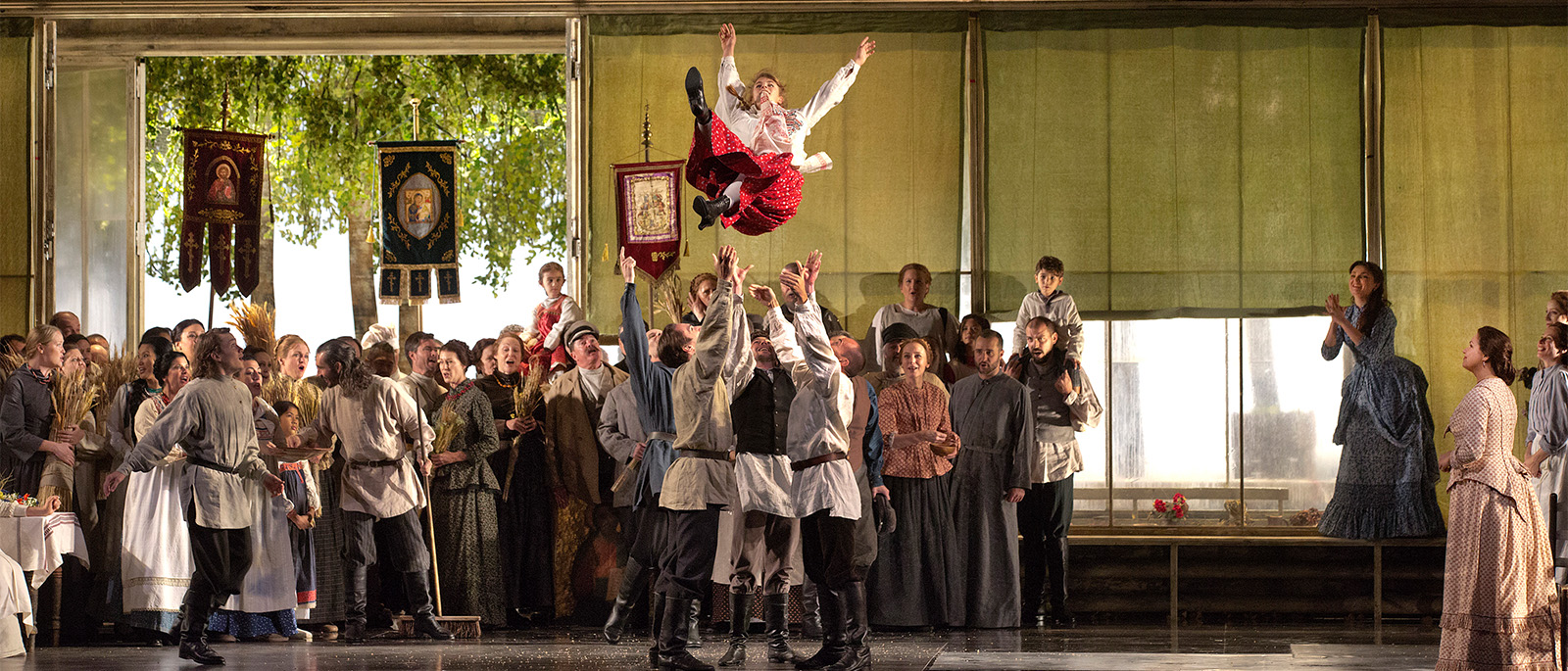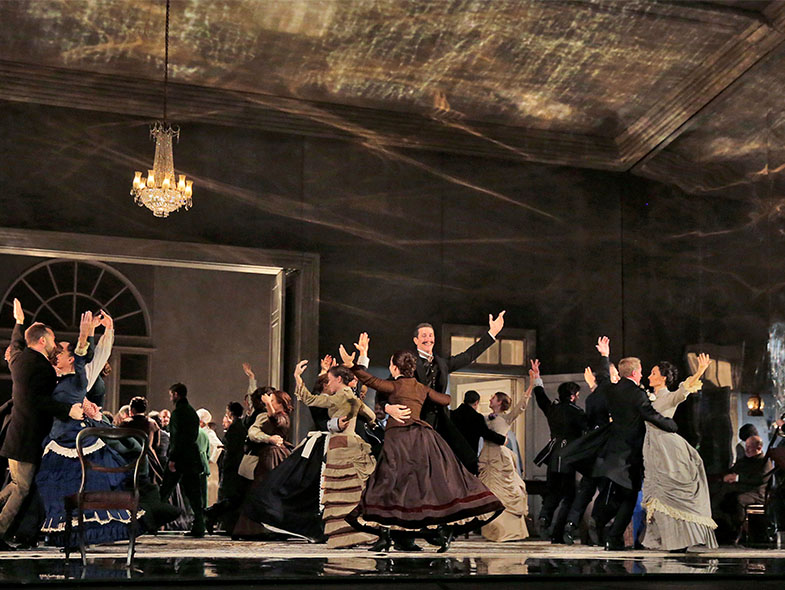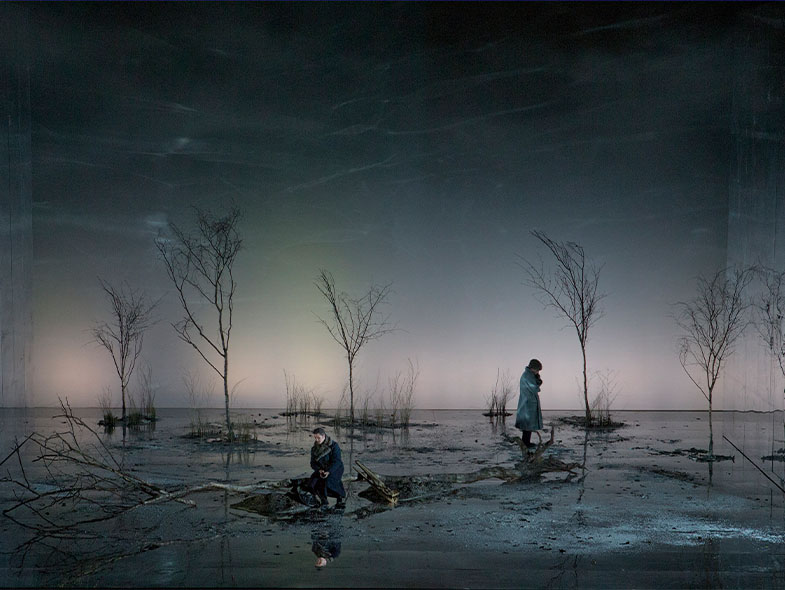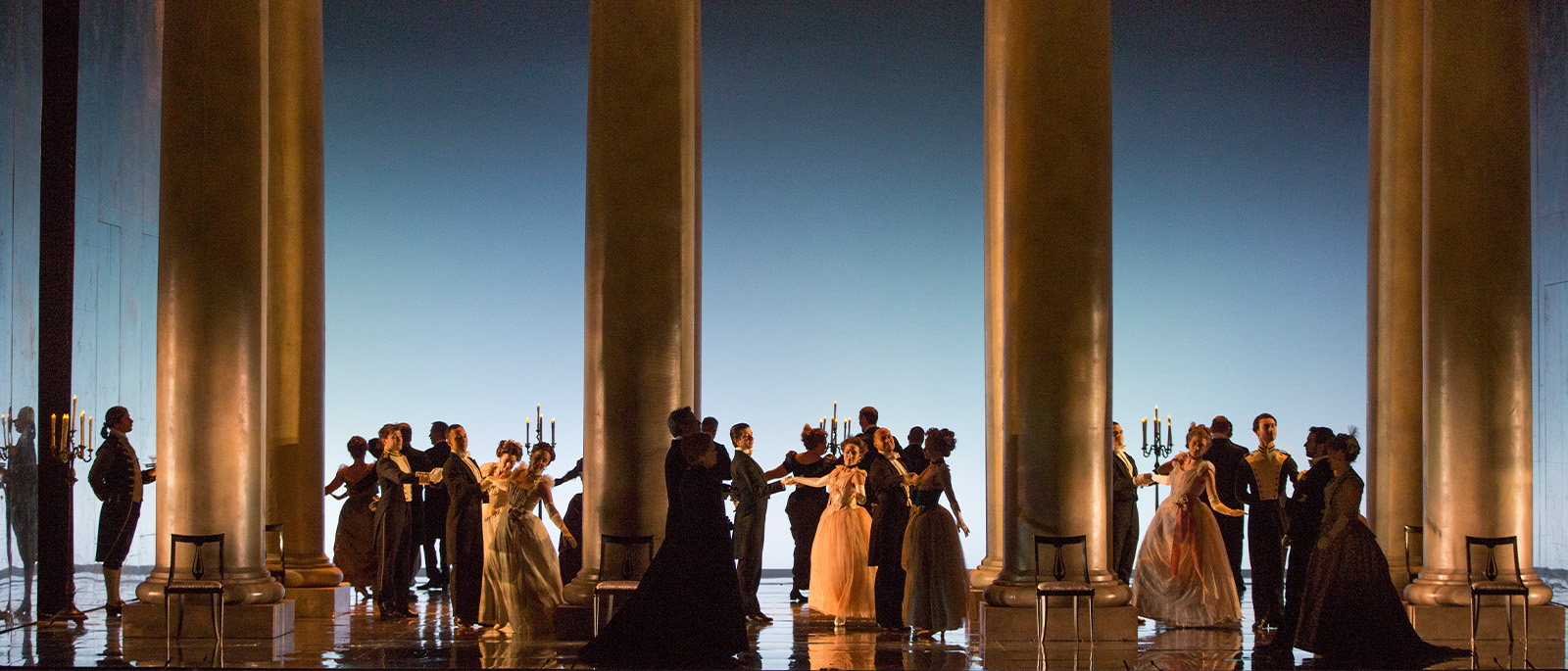
Pyotr Ilyich Tchaikovsky
Eugene Onegin
LIVE IN HD
Overview
Following her acclaimed 2024 company debut in Puccini’s Madama Butterfly, soprano Asmik Grigorian returns to the Met as Tatiana, the lovestruck young heroine in this ardent operatic adaptation of Pushkin, which will be transmitted live from the Metropolitan Opera stage to cinemas worldwide on May 2. Baritone Igor Golovatenko reprises his portrayal of the urbane Onegin, who realizes his affection for her all too late. The Met’s evocative production, directed by Tony Award–winner Deborah Warner, “offers a beautifully detailed reading of … Tchaikovsky’s lyrical romance” (The Telegraph). This live cinema transmission is part of the Met’s award-winning Live in HD series, bringing opera to movie theaters across the globe.
English StreamText captioning is available for the Met’s transmission of Eugene Onegin here. A transcript of the transmission will also be available to view after the live performance.
Production a gift of Ambassador and Mrs. Nicholas F. Taubman
The Met gratefully acknowledges the support of Elizabeth M. and Jean-Marie R. Eveillard
SUNG IN
RUSSIAN
Timeline
Timeline for the show, Eugene Onegin
ESTIMATED RUN TIME
4 HRS 5 MINS, WITH TWO INTERMISSIONS
Cast
Select a date from the dropdown to filter cast by date of performance

World premiere: Malïy Theatre, Moscow, 1879, with students from the Moscow Conservatory; Professional premiere: Bolshoi Theatre, Moscow, 1881
Tchaikovsky’s many moods—tender, grand, melancholy—are all given free rein in Eugene Onegin. The opera is based on Pushkin’s iconic verse novel, which reimagines the Byronic romantic anti-hero as the definitive bored Russian aristocrat caught between convention and ennui; Tchaikovsky, similarly, took Western European operatic forms and transformed them into an authentic and undeniably Russian work. At the core of the opera is the young girl Tatiana, who grows from a sentimental adolescent into a complete woman in one of the operatic stage’s most convincing character developments.
Creators
Pyotr Ilyich Tchaikovsky (1840–93) enjoyed tremendous fame during his lifetime as a composer of symphonic music and ballets. His operas have achieved a steadily growing popularity outside of Russia. The libretto for Eugene Onegin was largely put together by the composer himself, with help from his brother Modest (1850–1916) and others. The source of the libretto is the mock-epic verse novel of the same name by Alexander Pushkin (1799–1837), whose position in Russian literature can be compared only to that of Shakespeare in English.
PRODUCTION
Deborah Warner
Set Designer
Tom Pye
COSTUME DESIGNER
Chloe Obolensky
LIGHTING DESIGNER
Jean Kalman
PROJECTION DESIGNER
Ian William Galloway and Finn Ross
CHOREOGRAPHER
Kim Brandstrup

Composer
Pyotr Ilyich Tchaikovsky
Setting

Pushkin presents a vast overview of old Russian society around 1820, which Tchaikovsky’s original score neatly divides into each of its three acts: from the timeless rituals of country life to the rural gentry with its troubles and pleasures and, finally, the glittering imperial aristocracy of St. Petersburg. The Met’s production places the action in the later 19th century, around the time of the opera’s premiere.
Music
Tchaikovsky’s universally beloved lyric gifts are at their most powerful and multilayered in this opera. Rich ensembles and buoyant dance numbers punctuate the work, and the vocal solos are among the most striking in the repertory: Anyone who can remember the first stirrings of love will be moved by Tatiana’s Letter Scene, in which she rhapsodically composes a letter to Onegin in an outpouring of gorgeous melody. This is rivaled in popularity by the tenor’s moving farewell to his young life in Act II, while Onegin’s Act III narrative on the pointlessness of life borders on Wagnerian

Share This Page
Social Share
Copied